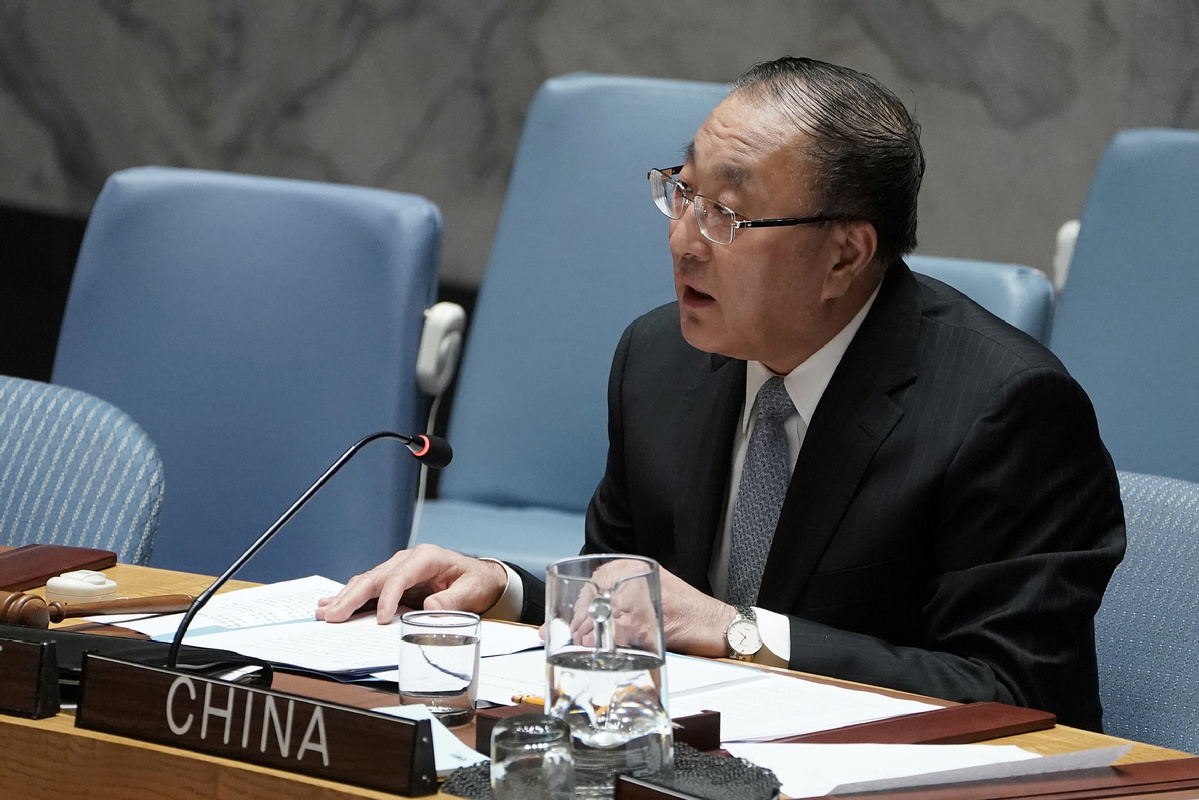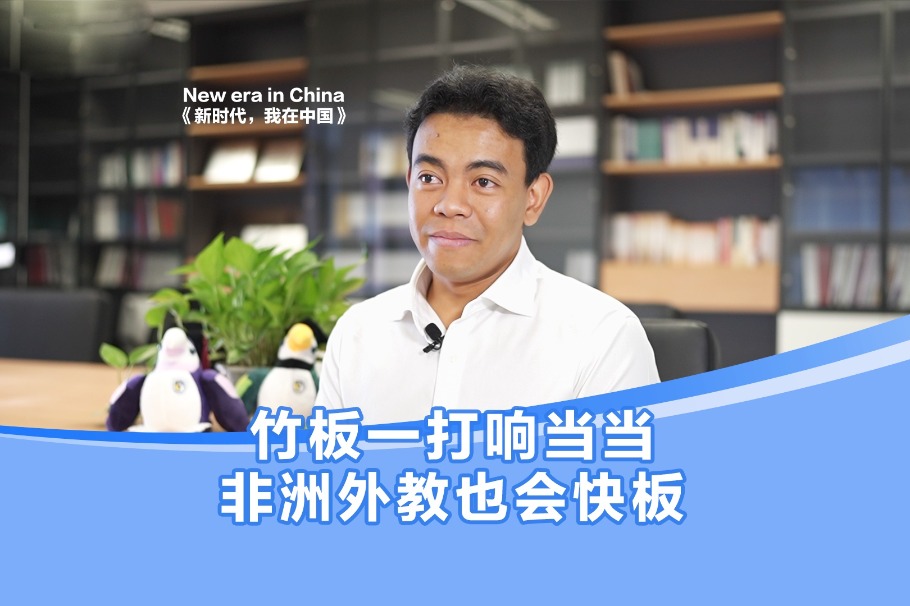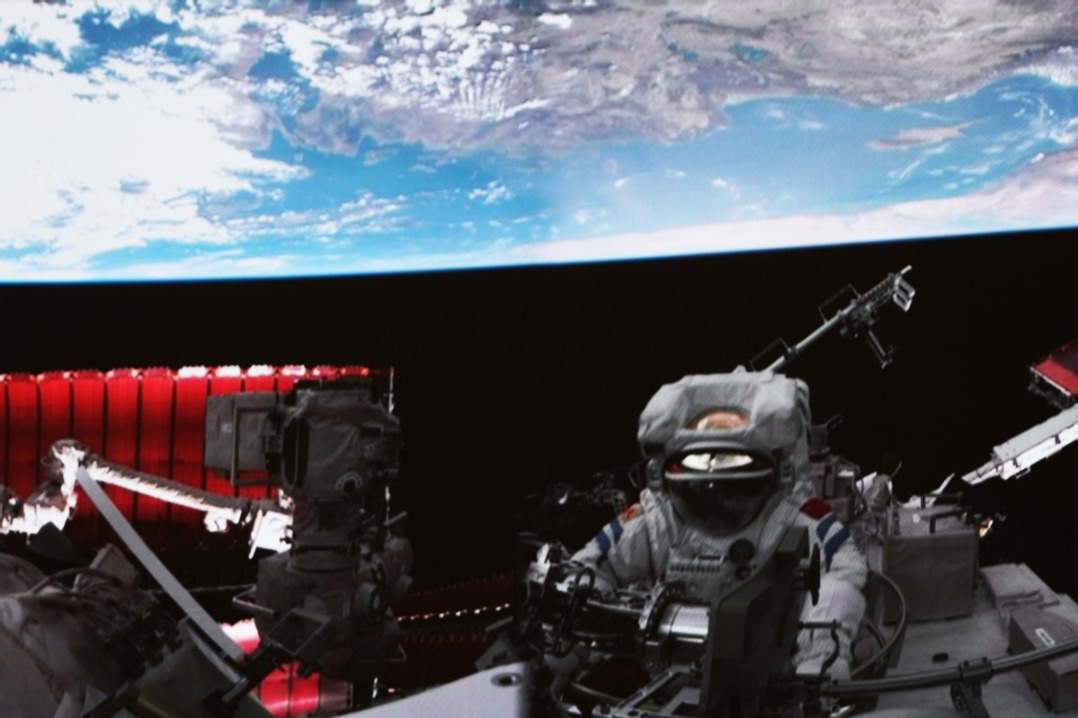Chinese envoy calls for return to Minsk agreements on Ukraine
By MINLU ZHANG in New York | chinadaily.com.cn | Updated: 2022-02-18 06:04

China's ambassador to the United Nations on Thursday stressed that regional security should not rely on "muscling up or even expanding military blocs", and the settlement of the Ukraine issue must return to the implementation of the Minsk agreements.
The Security Council on Thursday held a briefing on Ukraine and considered the implementation of the new Minsk agreements. Zhang Jun, China's permanent representative to the UN, elaborated on China's position on the current situation in Ukraine.
Feb 12 marked the seventh anniversary of the new Minsk agreements. The Minsk agreements are recognized by all as a fundamental and binding political document for the settlement of the Ukraine issue and were unanimously endorsed by Security Council Resolution 2202. Therefore, they deserve complete and effective implementation by all parties concerned, said Zhang.
"Regrettably, the majority of the agreements' provisions have yet to be truly implemented. New cease-fire violations have reportedly occurred on the lines of contact," he said.
Zhang pointed out that to solve the Ukraine issue, it is imperative to return to the agreements.
"We hope that all parties concerned will take a constructive attitude, resolve through dialogue and consultation whatever differences that may arise in the implementation of the agreements, and draw up a roadmap and timetable to implement the agreements to the letter without delay, so as to pave the way for a political solution to the Ukraine crisis," the envoy said.
Zhang said that in the current context, all parties concerned should "let reason prevail, adhere to the general direction of political solution, and refrain from any act that may provoke tensions or hype up the crisis".
"The parties should fully consider each other's legitimate security concerns and show mutual respect, and on such a basis, properly resolve their differences through equal-footed consultations," he continued.
Zhang said that China supports all efforts conducive to easing the tensions and noted that the recent diplomatic engagement between the Russian Federation with France, Germany and other European countries at the leaders level.
"A negotiated, balanced, effective and sustainable European security mechanism will serve as a solid foundation for lasting peace and stability across Europe," he said. "We trust that European countries will take decisions with strategic autonomy in line with their own interests. China also supports the secretary-general's good offices aimed at reducing tensions."
Zhang stressed that everything happens for a reason. "NATO enlargement is an issue that cannot be overlooked when dealing with the current tensions related to Ukraine. NATO's continuous expansion in the wake of the Cold War runs counter to the trend of our times — that is to maintain common security," he said.
"One country's security cannot be at the expense of the security of others. By the same token, regional security should not rely on muscling up or even expanding military blocs. This applies as much to the European region as to other regions of the world," said Zhang.
"There is one country that refuses to renounce its Cold War mentality. It says one thing and does another, in order to seek absolute military superiority. It has been ganging up in the Asia Pacific region, creating trilateral and quadrilateral small cliques, and bent on provoking confrontation," Zhang said.
The ambassador said what it is doing will only throw the Asia Pacific region into division and turmoil and seriously threaten the area's peace and stability, to the detriment of the countries in the region while getting nothing for itself.
"China urges the countries concerned to learn from history, subscribe to the notion of common, comprehensive, cooperative and sustainable security, adhere to the approach of enhancing mutual trust and settling disputes through dialogue and consultation, and do more to contribute to world peace and regional stability," said Zhang.
























